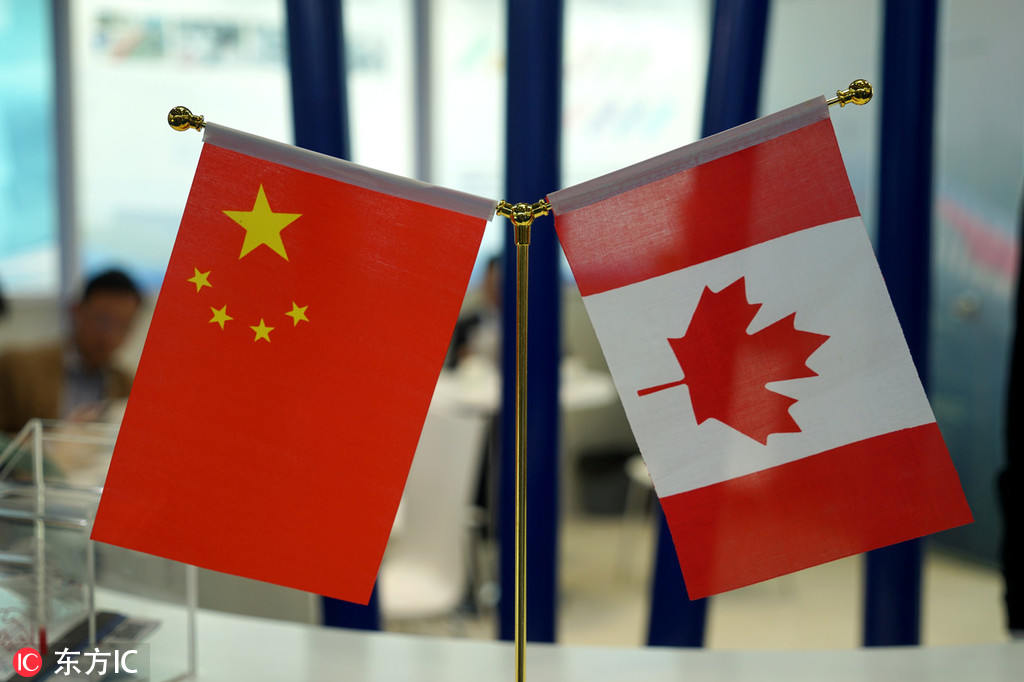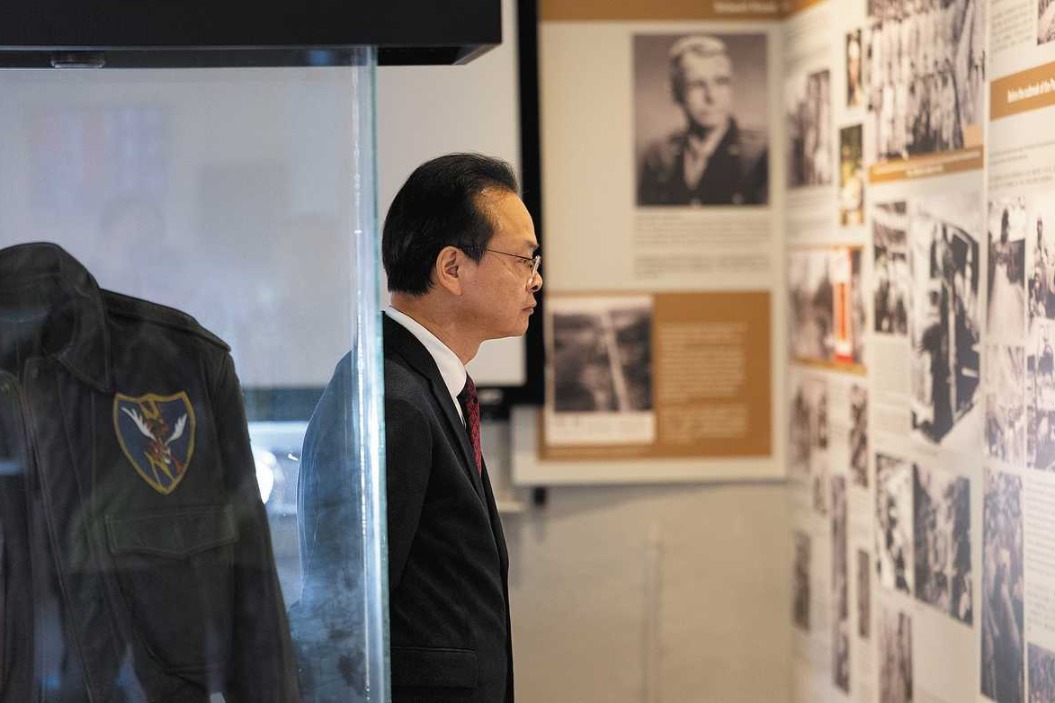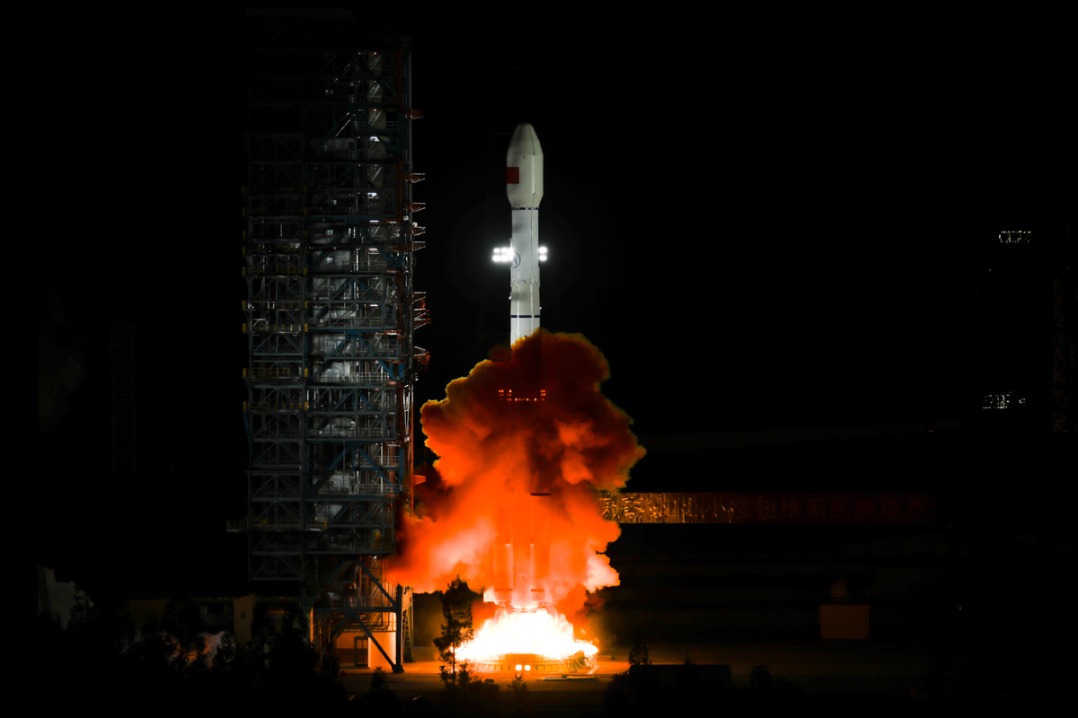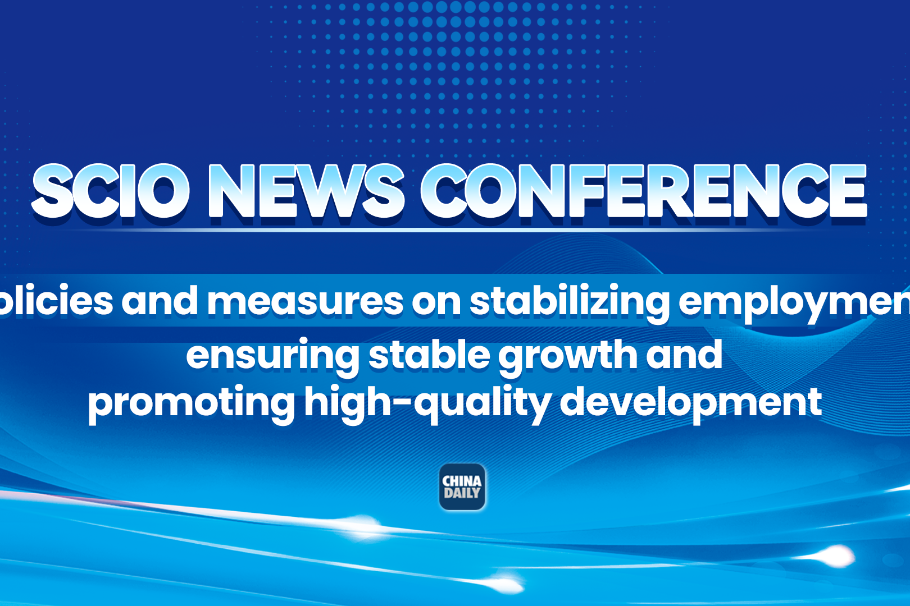Canada-China ties need reset, experts urge
By RENA LI in Toronto | China Daily Global | Updated: 2021-03-04 12:33

Canada-China relations have hit "rock bottom" and are at "freezing point" since Chinese telecom executive Meng Wanzhou was arrested in 2018, and Canada's recent actions over the Xinjiang region could further harm the bilateral relationship.
That is why it is critical for Canada to revisit its policies and examine opportunities for pragmatic engagement with China, according to political experts.
Members of the Canadian Parliament voted on Feb 22 to label China's treatment of the Uyghur Muslims a "genocide" and to call on the Ottawa government to formally adopt that position, without the support of the Liberal Party cabinet.
The Chinese embassy in Canada soon afterward issued a statement condemning the "disgraceful move", noting that Xinjiang's GDP and the population of the Uyghurs there has expanded and increased dramatically over the past 60 years.
Paul Evans, a professor of public policy and global affairs at the University of British Columbia, said the relationship between the two countries is in a "painful moment".
Although the motion came out of parliamentary committees and does not reflect the Canadian government's official policy, it is a significant turn in the bilateral relationship.
"It demonstrates the negative perspective many Canadians hold towards China, indicates how far our media and information landscape about China have shifted in the last two years," Evans said during a virtual panel discussion "Assessing Canada-China Relations – Challenges and Opportunities", hosted by the Institute for Peace & Diplomacy on Feb 24.
"We need to engage our China discussion in a new and more active way — even if it's dangerous and risky to be labeled as pro-China — it is not a healthy environment," he said. Evans also said that Canada should pursue a foreign policy independent of the US. Meng, chief financial officer of Huawei Technologies Co Ltd, was arrested at the request of the US and is facing extradition.
Yuen Pau Woo, an independent senator representing British Columbia, who was former president and CEO of the Asia Pacific Foundation of Canada, told the audience that the mood of Canada on China is "febrile", and the "fever" is from Ottawa, especially on Parliament Hill, which makes the discussion on China increasingly difficult.
According to Woo, there is a deep desire to rethink Sino-Canadian relations. However, the nature of the rethinking is more motivated by Chinese power and the general rise of the Asian nation, with its ascendancy more pronounced since 2008.
"The US-China rivalry sets the context for the current situation. It is the single greatest impacting factor on Ottawa's relationship with Beijing. We have to put this strategic rivalry at the center of the discussion surrounding Canadian foreign policy," said Woo. "The challenge we face is to find the degree of freedom that we are allowed in navigating the rivalries between the two great powers."
Woo pointed out that some Canadian media label China as a "threat" to Canada, which created a "divisive" environment, prone to "reflexive labeling" and "denunciation" rather than "open-minded conversation".
"Calling the second-largest and soon to be largest economy in the world a 'threat', the consequences go beyond saying so in an editorial," Woo said.
"I suggest seeing China as a 'global neighbor'," said Woo. "Let's reflect more deeply about the neighborhood. You have neighbors that you like, or not like, but you need to find a way to get along with different members of your community."
Graham Shantz, president of the Canada-China Business Council (CCBC), who first visited China 40 years ago, believes that people-to-people relations are critically important for the success of the relationship.
Shantz told the webinar that 70 percent of CCBC members are small and medium-sized enterprises such as canola farmers, meat farmers and seafood producers; 20 percent are educational institutions, and the remainder are in industries such as tourism.
"The nature of our memberships has reflected a change in Canada's interests in China," said Shantz. "There are other important dimensions — most important is the flow of people — students and immigration coming from China for Canadian long-term prosperity."
China is Canada's second-largest trading partner behind the US. However, China will become the largest economy in the world by 2027, according to the World Bank.
Ottawa's policymakers need to look at the trade rules with China for their own economic interest, according to Shantz.
He stressed that the environmental and climate change agenda is a high priority for Canada. There is space within the climate discussion to pursue engagement with China, given Canada's common interests and technology strengths.
"On the export side, we are underexposed to Asia. Our number one export is energy — 99 percent to the US. As we have just seen, Biden canceled the Keystone pipeline, which is a keen interest in Asia. China will be the largest market for energy, overtaking the US," Shantz added.
Henry Wang, president of the Centre for China and Globalization, who studied in Canada and worked for the Quebec provincial government, said there is goodwill toward Canada in China, and vice versa. He is cautiously optimistic given that US President Joe Biden is expected to take a more pragmatic approach to US-China relations.
"Now is a good time — when other things are moving forward," said Wang. "Why would the Canadian Parliament vote on the Xinjiang issue? We should give some recognition to China on lifting 800 million people out of poverty — this is the biggest human rights achievement in our time."
























